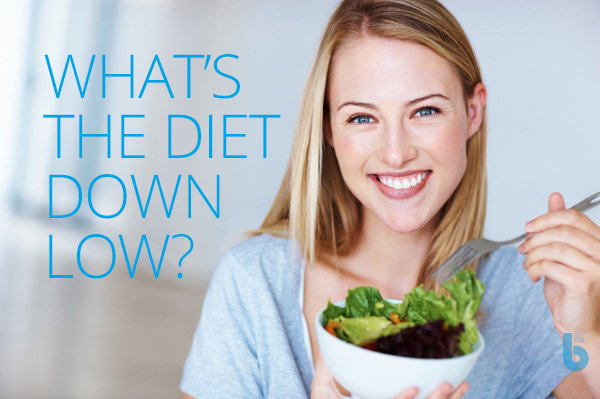With a new diet craze making the rounds every few weeks, it’s tricky to know what dietary advice to follow. The demonization of ‘fat’, the calorie restrictive diets, and complete elimination of carbohydrates are just a few examples of confusing media surrounding nutrition and health. Nutritionist Rhiannon Lambert offers some advice on the diets everybody is talking about.
Recent scientific research has been heavily focused on sugar and processed foods (which I feel is a right move) and the effects they have on both weight management and one’s risk of developing metabolic diseases. I am an advocate of a healthy lifestyle and eating what I call ‘real’ and ‘clean’ foods; faddy diets are not good for your body.
Dukan Diet
Based on a low-carbohydrate and high protein diet with strict rules to follow, you can eat as much as you want during the four phases of the diet, as long as you stick to the rules. It is possible to lose weight fairly quickly during this diet, but, ultimately, it is not a healthy way of going about this. The diet is not nutritionally balanced, which is emphasised by the requirement of a multi-vitamin supplement and additional fibre added from oat bran. If you are unable to follow the rules of this diet, there also may be long-term health risks alongside the short-term side effects such as bad breath, dry mouth, tiredness, dizziness, insomnia and nausea from cutting out carbs. (The only fuel your brain can use is from carbohydrates).
5:2 Diet
This diet involves intermittent fasting (IF) – where you eat normally five days a week and fast on the other two days – which works by reducing calorie intake. This diet has been found to significantly lower one’s risk of developing chronic diseases such as type 2 diabetes and may help lower the risk of certain obesity-related cancers, such as breast cancer. However, if you are considering it, you should first talk to your GP to see if it is suitable for you. Not everyone can safely fast. It is important to remember nutrients are equally important as numbers. I’d only advise following this diet if you chose to abide by a balanced eating plan devised by a nutritionist to avoid nutritional deficiencies, dehydration or over-eating on non-fast days. Make sure to ask yourself if this diet is maintainable for you?
Paleo Diet
Another low-carb, high-protein diet, the Paleo Diet focuses on food that can be hunted, fished (meat & seafood) or gathered (eggs, nuts, seeds, vegetables, herbs and spices). Also known as the caveman diet, this is a good way of eliminating anything processed such as wheat, dairy, potatoes and refined sugars, which were not present before the Palaeolithic Era. It can be rather dangerous to exclude whole food groups without seeking nutritional advice first. Nutrient deficiencies may arise from this diet, but if you adapt it to cater to your nutritional requirements this is a great way of ‘eating clean’.
Alkaline Diet
This diet promotes good healthy-eating habits such as cutting down on meat consumption, refined sugar, caffeine, processed foods (acid-forming foods) and upping the intake of vegetables, fruit and whole grains otherwise known as ‘alkaline foods’. The belief is that excess acid in the body turns to fat and contributes to conditions such as, osteoporosis and kidney and liver disorders. The body actually maintains its pH balance regardless of diet and, once again, cutting out whole food groups without consulting a health professional is not advisable. That being said, I think the Alkaline Diet contains a number of sound dietary principles.
South Beach Diet
This is a great rounded diet, but it’s tough to get into. Known as the low-GI (glycaemic index) diet, this was originally developed for patients in the US with heart conditions. There’s no calorie counting, and the diet includes three meals a day with snacks and an exercise plan. As tempting as its promise of a weight loss of up to 13lbs in the first might be, the South Beach Diet isn’t for everybody. Remember, this is not just fat loss; water and carbs are also reduced, and they’ll eventually be replaced when you begin eating normally again. Overall, once you get past the first phase of the diet, the basic principles of healthy and nutritionally balanced eating and exercise are great to follow.
The food that you eat can be the difference between feeling merely okay and feeling on top of the world, both mentally and physically. Ultimately, any nutritional programme should be carefully considered. No single plan is suitable for all.
If you wish to book a private consultation with Rhiannon Lambert to ensure you put the appropriate plan into practice, visit www.rhitrition.com




